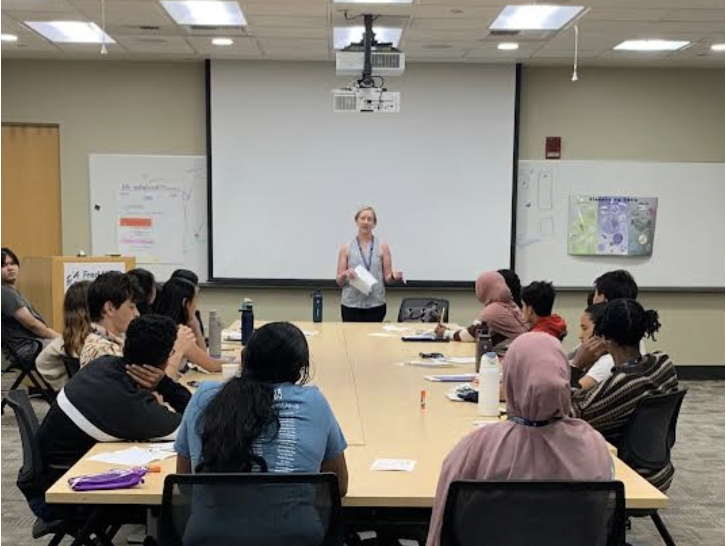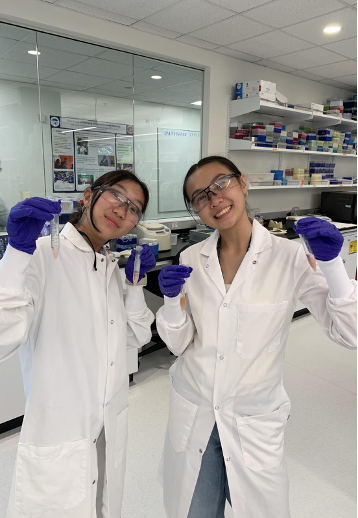Yahya A.
- Sep 18, 2025
- 2 min read
In my time at the Fred Hutch Explorers program I expected to learn about general research methods, and cancer treatment methods. What I realized a few days into the program was that I learned more about myself and future careers that resonated with my personal goals and interests. Although the program was just two weeks long, it was immersive, allowing you to explore what you liked. For example, one of my favorite things was the fact that we were able to look at what other researchers had completed by attending poster/screen presentations. Although we did not spend nearly enough time on them, programs such as the SHIP program and Hutch Advance showed me that research wasn’t just running gels and PCR’s.
For example, one of my favorite presentations was from Czarinah Cameron Castro, a first generation college student aspiring to become a doctor. She shared her internship experience working on cell therapy development at Fred Hutch, which I found impressive. Instead of the usual preclinical or clinical work, it was more about translational research, taking discoveries from the lab and moving them closer to treatments for patients. I did not know that was an option and was intrigued by this. I also liked how there were subjects we had been taught in this program that helped me further understand how she conducted her experiment, like flow cytometry and the applications behind CRISPR.

Czarinah Cameron Castro with her mentors Isabel Nowak and Summer Turnberg who guided her throughout the internship with TPP at Fred Hutch

Dr. Barbara Norquist, a gynecologic oncologist at the University of Washington presenting
One of the most influential speakers at the Explorers program was Dr. Barbara Norquist, a gynecologic oncologist at the University of Washington, who was friendly and started her presentation by explaining where different parts in the reproductive system are, and their function to help us better understand their effect in cancer. Beyond her job, she also shared information about her mentor, Mary-Claire King, who discovered the BRCA 1 gene in breast cancer. This was very informational and it made me realize how a student such as myself can have a guiding mentor no matter their accomplishments. She also connected with us by sharing her life experiences, and how she got into medicine, as a passionate and inspiring physician. Her story showed me that careers in medicine and research are shaped not just by knowledge, but also by curiosity, mentorship, and personal experiences.

Working with a group of Explorers to complete a gel electrophoresis
Another element was that I challenged the stigma around researchers working alone. While working independently is common in clinical settings, most hands-on pre-clinical work is a team effort. Throughout the program, we had the opportunity to perform a variety of research techniques, sometimes with a lab partner, and at other times as part of a group. We also learned how to troubleshoot and fix common issues that arise during experiments, gaining practical problem-solving skills and a deeper understanding of the methodology. Collaborating with others not only made the work more manageable but also highlighted the importance of communication and shared responsibility. This experience reinforced the idea that science is often a collective effort.





Comments